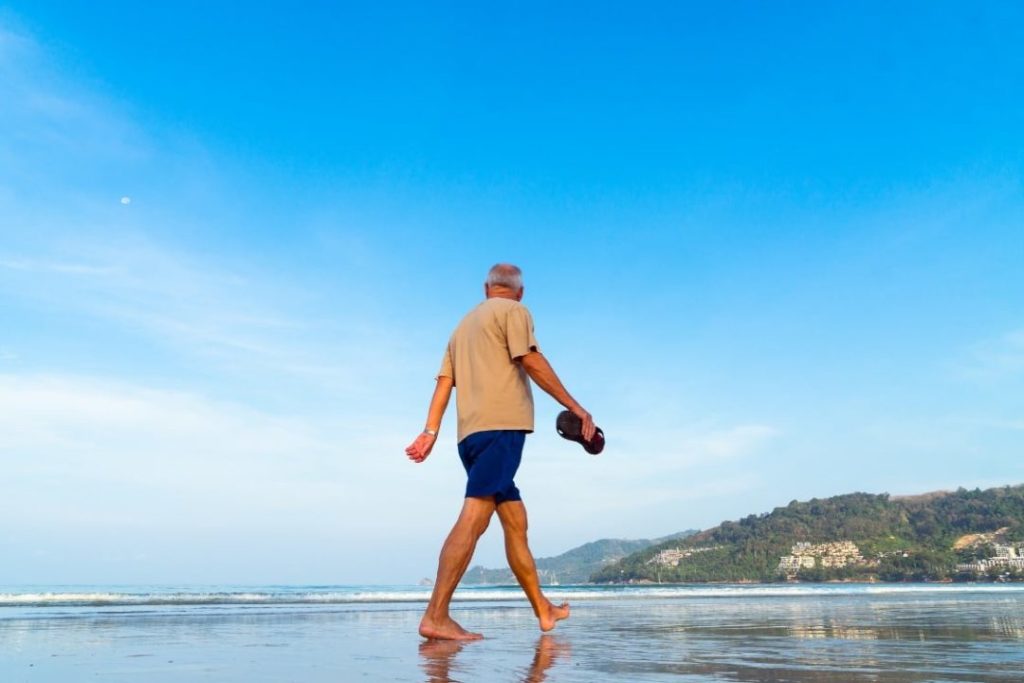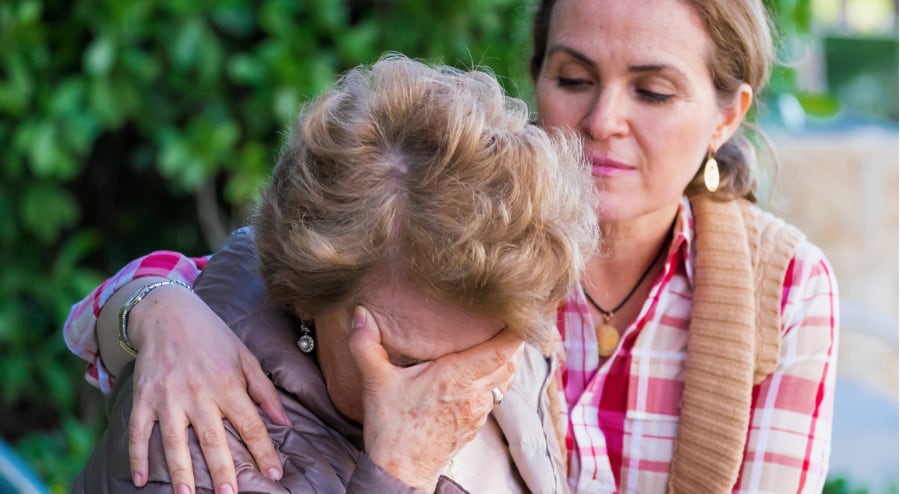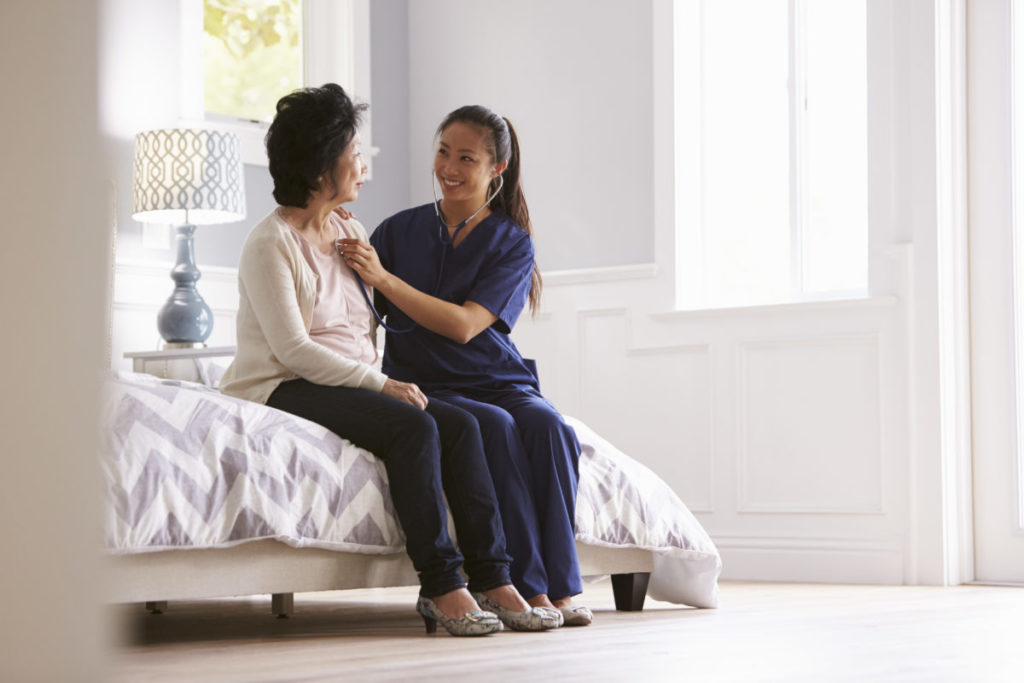As far as healthy aging at home, the key is to maintain balanced well-being, physically, mentally and emotionally. One thing to remember is that it’s never too late to make a healthy change and even a little can go a long way. Indeed, one positive change can give us the motivation to make more positive choices as we begin to feel better!
Here are some tips on how we can apply healthy living as we age at home.
Active Lifestyle
Getting a regular dose of physical activity or exercise every day is highly recommended for improving your overall body, health, and well-being. As you age, it’s important to stay active as it not only supports physical strength but also is associated with maintaining muscle and bone strength, getting better sleep, and improving mental capacity and memory, as well as reducing pain and the risk of depression.
An ounce of prevention is worth a pound of cure.

A chat with your physician before starting any new exercise program is always recommended. Your doctor can give you guidelines when choosing an exercise routine. Staying active doesn’t have to be difficult or strenuous.
Senior health could include playing with the grandchildren, it can be fun and keep you active as can walking, which is one of the safest and most recommended physical activities because we can pace ourselves and incorporate it so easily into our everyday lives.
Local community centers or fitness clubs usually offer exercise classes such as yoga, water aerobics, dance, etc. and are also great options for increasing flexibility and physical activity and overall senior health while in a recreational environment.
Gardening, golfing, and swimming are other activities that provide great exercise as we age. Remember to check with your physician first and then go for it! Make physical activity a regular part of your life and you will feel the benefits immensely.
Eating Healthily
As well as regular exercise, what we eat is very important to our overall health. Maintaining a healthy weight and getting better nutrition leads to overall better health. It’s generally recommended that we eat more veggies, more fish, less red meat, and replace deep frying and butter with unsaturated fats such as olive oil, sunflower oil, and grapeseed oil.
In spite of possible challenges eating healthy is possible and there are many ways to get help if it becomes overwhelming.
As we age, what we eat and how we eat may become more challenging for many seniors. Generally, our metabolism and digestion slow down. We may find it more difficult to prepare meals and cooking may feel like a chore. Getting to the grocery store regularly to buy fresh vegetables and fruit may become challenging for some.

Eating healthily may feel like too much work. It’s important not to give up on getting better nutrition. In spite of possible challenges eating healthy is possible and there are many ways to get help if it becomes overwhelming. Getting home caregiver help with cooking and meal preparation and grocery shopping is an alternative for many who find it physically difficult.
Many communities help seniors by offering services and programs that provide healthy meals.There are many great sources of information available to help guide us in eating healthy, such as books, websites, even local classes and programs dedicated to teaching better nutrition.
Your physician can assist you in getting help if you want to make healthy eating changes (i.e. recommend a nutritionist or consultant in setting up a healthy meal plan specific to your health needs).
Stay Socially Active
Part of a healthy lifestyle is maintaining emotional well-being. If you are a senior living at home and alone, loneliness may become a risk to your well-being. It’s recommended—especially after the loss of a partner or loved one—that you have regular social interaction on a daily basis at least with one person.
It’s highly recommended to join local recreational, community groups, and clubs to gain the stimulation and social support necessary for well-being.
Staying socially active doesn’t have to be difficult. Cultivating your relationships with family and friends (even if they are distant) is inexpensive and convenient with modern technology (cell phones, video/calling) so you can keep in touch daily.
In addition, it’s highly recommended to join local recreational, community groups, and clubs to gain the stimulation and social support necessary for well-being. Volunteering offers a unique benefit in that it lets us give back to others and provides a meaningful sense of purpose and contribution.
If it’s difficult to get out and about, there are various local senior programs that arrange pick-up and transportation to events and activities. So, don’t be shy—there are many choices available to keep you connected and part of your community!
Getting Quality Sleep and Rest
Sleep is essential to our health. This is supported by the fact that physiologically we can go longer without food than we can without sleep. As we age, we need more sleep than when we were younger adults. It’s recommended that 7–9 hours of sleep is necessary for senior adults.
7 to 9 hours of sleep a night is necessary for senior adults
Without adequate sleep, we increase our chances of developing cognitive (memory) problems, depression, and irritability. As well we may increase the risk of falling and injury when we are overtired and fatigued.
Exercise during the day can help with better quality sleep along with having a proper sleep schedule. Try and get to bed before 11 pm and having a cooler, dark room can ensure a longer, deeper sleep. Avoiding stimulants before bed, such as TV, the Internet, and caffeine should also help with getting better rest at night.
Stress Reduction
Managing stress is important to overall health and well-being. Long-term stress causes our immunity to weaken and is associated with memory loss, fatigue, and unhappiness. Stressful situations happen to everyone, but our ability to respond to stress is something that we can improve.
Stressful situations happen to everyone, but our ability to respond to stress is something that we can improve.
Exercise, nutritious foods, and additional rest can give us the physical strength to offset stress. Emotionally, we need to get the support of friends and family or professionals such as counselors about our stress.

Relaxation tools can also assist, such as listening to relaxing music, being out in nature, deep breathing, and stretching. Don’t worry about things you can’t control—try to focus on the positive.
Stretching our intellectual muscle is another way we can stay mentally fit. Staying active mentally can actually prevent cognitive decline such as dementia and Alzheimer’s disease.
Reading, crossword puzzles, Sudoku and other mental games are great ways to keep mentally active. Challenging our mind by learning new things is also highly recommended. Learning new languages, musical instruments, taking classes, and developing new skills are great ways to have fun and stay mentally healthy.
Practice Prevention and Safety
An ounce of prevention is worth a pound of cure. Other ways to ensure well-being is to invest in making your home a safer living environment. Reduce the risk of falling by eliminating certain obstacles and carpeting.
We can modify our homes to provide extra stability and help mobility (i.e. installing grab bars, slip-free flooring, etc.). An alarm system or medical safety device can provide added security and ensure someone responds quickly if we have an emergency or accident at home. There are experts who can assess your home if you need to make changes and modifications to add security and safety.
Another area we can apply prevention is to our health. It’s important to attend regular checkups with your physician. In addition, you should get the proper health screening tests as deemed necessary by your doctor, such as:
- Thyroid test
- Immunizations (recommended to get flu vaccine yearly and, if not yet vaccinated, then get the pneumonia vaccine, tetanus, and herpes zoster for shingles prevention)
- Specific to women: mammogram, pelvic exam and, if still necessary, a pap exam
- Specific to men: prostate cancer screening
- Blood pressure screening
- Bone mineral density testing (osteoporosis or bone loss screening)
- Cholesterol screening
- Colorectal cancer screening
- Dental exam
- Diabetes screening
- Eye exam
- Hearing test
Emotional Health
Feeling happy and being positive are naturally associated with well-being. Our emotional health is just as important as our physical and mental health throughout our life. As we age, we may have more time to devote to our emotional well-being.
Our emotional health is just as important as our physical and mental health throughout our life.
Indeed, our life experience has taught us much about what really matters and we may have a new-found appreciation for spirituality as we age. Practicing spirituality (prayer, meditation, attending religious services, and reading inspirational books) is associated with longevity and positivity.
Other sources of emotional happiness and well-being can be linked to feeling connected and spending time with our loved ones, pets, and friends. Sharing and expressing love is vital to our emotional health. Doing something you feel passionate about such as a hobby can also lift our spirits and keep us feeling motivated and positive.
For many volunteering provides an increased sense of purpose by allowing one to contribute and help others. All of the above examples illustrate how important emotional balance is to living a healthy life.
Health and Balance
Aging well at home means establishing a balance of physical, mental, and emotional health. All three are linked to well-being and longevity and many activities and lifestyle choices can support all three.
In the end, we can say that by focusing on eating healthy, staying active, physically, socially and mentally, getting proper sleep and rest, having a safe home, getting regular health check-ups, and by simply being happy and positive we can do a lot to improving the quality of our lives overall.
Remember that it’s never too late to make a change to improve ourselves and the way we live. Small steps can lead to big improvements and feel better!
Do you want to cite this page? Use our ready-made cite template.
